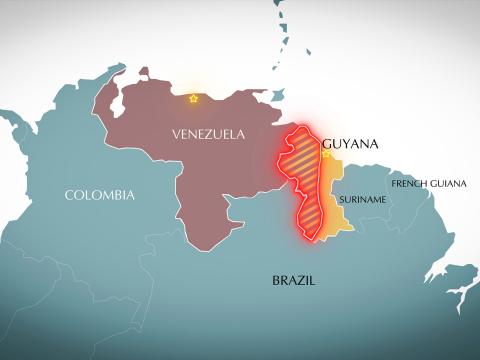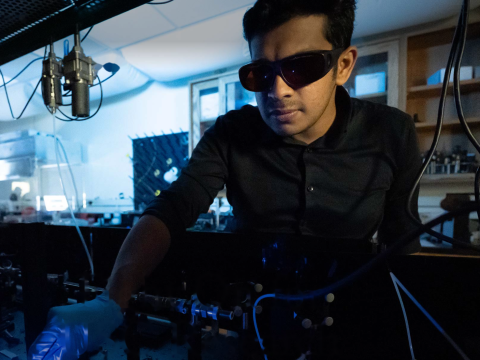Natural Threats Dominate Transatlantic Jam Session Findings
Threats to global security now include the ongoing pandemic, its exploitation by international malefactors and climate change, according to an ad-hoc group of international defense and national security experts. These experts spent two days brainstorming the future online, and their findings were analyzed by the world’s most well-known artificial intelligence (AI) computer.
Titled “Securing the Post-COVID Future,” the event exchanged ideas among active duty military and civilian expertise with several international organizations. Findings during the 50-hour nonstop event were evaluated by tools from Watson, IBM’s question-answering computer that bested Jeopardy!’s top two champions in a competition a few years ago.
“This is all about developing policy options at the speed of relevance,” says Leendert Van Bochoven, global lead for defense and intelligence, IBM.
Preliminary findings in The Transatlantic Security Jam, as it is known, reveal several key observations flavored with a whole-of-governenment, whole-of-society approach. One, described as the Dragonbear effect, entails actions by China and Russia that are dominating the post-COVID-19 response. These two countries have an enormous impact on the transatlantic community, according to Jam participants.
The greatest activity in the entire Jam, by topic, was competition for influence. A top supporting argument is that China and Russia are using cyber means for disinformation campaigns that capitalize on the weakened resiliency of Western societies. Both countries leverage disinformation campaigns targeting Western countries, and the Jam suggested that democratic countries should focus on citizens’ safety and countering threats from the two nations.
A related finding is that fake news and disinformation have turned the COVID-19 pandemic into an infodemic. China and Russia have created the impression of selfless support to the countries most hit by COVID-19 by way of symbolic gestures for strategic communications purposes. Unified messaging around the virus, along with actions by the European Union (EU) and NATO, can help counter disinformation from the two countries.
A third finding is that strong mixed views exist on how to define EU and NATO objectives and collaboration. The EU is pursuing its own agenda in global security, and one area of conversation focused on how autonomous the EU is in light of its agenda. The relationship between NATO and the EU also came under discussion, along with calls for the EU to continue to invest in defense capabilities. Many panelists called for more collaboration between the EU and NATO to reduce overlaps between the two multinational organizations. Also, NATO must be better prepared for future pandemic and biological threats.
The evident tension between nationalism and globalism is the fourth finding. COVID-19 has exacerbated these tensions, and international alliances such as NATO must combat the inward turning of their members. This is especially vital as global challenges increase in severity and location. Instead of allowing security competition to grow, NATO and the EU must boost their coordination. The virus could present an opportunity to strengthen collaborative efforts and multilateral defense cooperation mechanisms.
And the fifth finding is the importance of climate change. It appeared in many of the conversations about pandemic solutions. One point that emerged is that it plays a role in shaping and influencing how nations and alliances meet all the threats that confront them.
The AI from Watson, known as Debator, was a grand challenge product that served to extract supporting and opposing arguments based on a statement. It would assess a statement and generate the strongest supporting and opposing points. “Computational argumentation” was applied to extract arguments from all the forums, Van Bochoven says. This gives policy makers arguments that can be taken into account in their policymaking, he adds.
Another set of AI tools, called Personality Insight, (#28), analyzed how all the participants wrote. Based on that analysis, it extracted a persona for the people in the Jam. Having this persona can aid policy makers in communication with security professionals over the findings.
Following a final report on the Jam, NATO and the European Union will review its findings this summer.




Comments